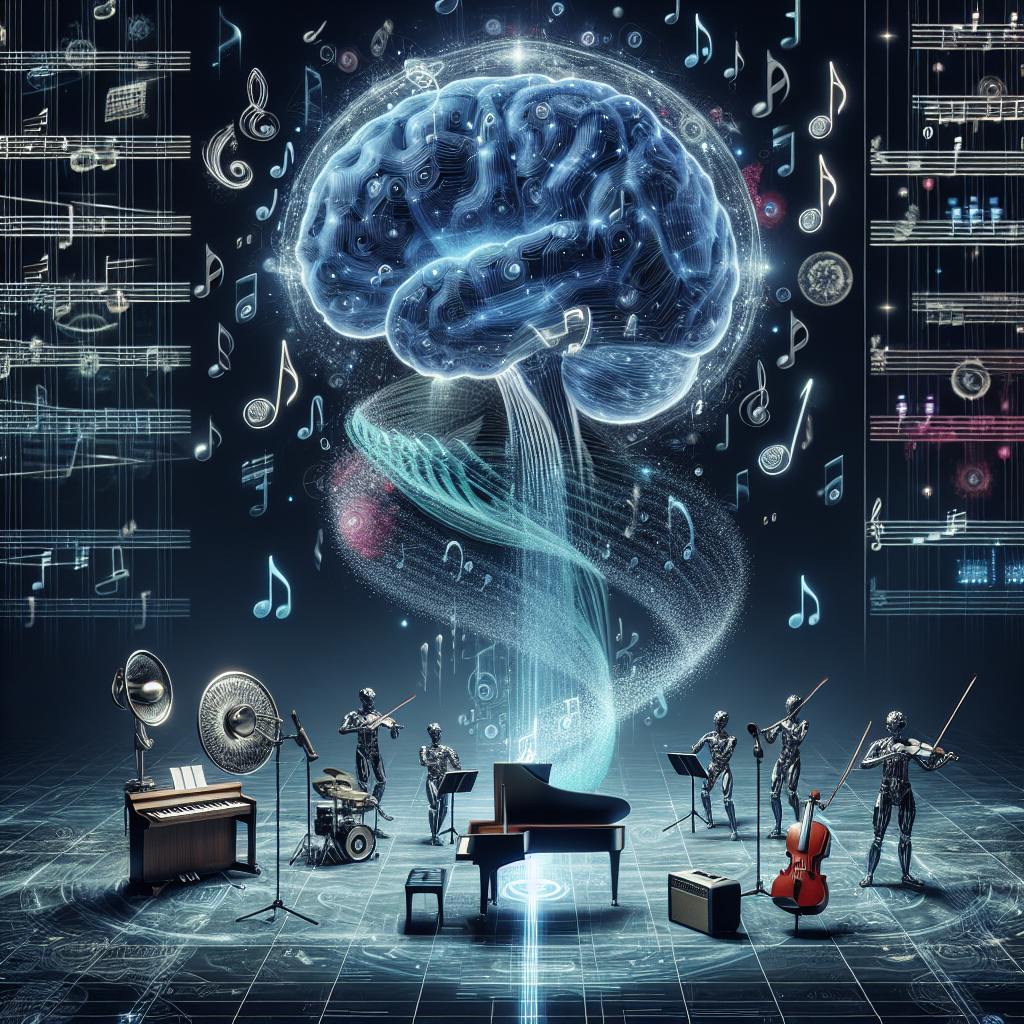In recent years, the intersection of artificial intelligence (AI) and music has gained significant traction, opening up new possibilities for musicians, composers, and music enthusiasts alike. From generating musical compositions to enhancing the creative process, AI is redefining the way we approach music and pushing the boundaries of what is possible in the realm of music creation.
AI and Music Composition
One of the most exciting applications of AI in music is in the realm of composition. AI algorithms can analyze vast amounts of musical data and create new compositions based on patterns and trends found within that data. This has the potential to revolutionize the way music is created, allowing for new and innovative compositions that may have never been possible before.
One of the most well-known examples of AI-generated music is the work of composer and programmer David Cope. Cope created a program called Experiments in Musical Intelligence (EMI) that can compose music in the style of various classical composers, such as Bach or Mozart. EMI has been able to produce compositions that are indistinguishable from those of the original composers, leading to questions about the nature of creativity and the role of AI in the creative process.
AI and Music Production
In addition to composition, AI is also being used to enhance the production process in music. AI algorithms can analyze audio files and make recommendations for mixing and mastering, helping to streamline the production process and improve the overall quality of the final product. This can save time and resources for musicians and producers, allowing them to focus more on the creative aspects of music-making.
AI is also being used to create new sounds and instruments that were previously unimaginable. Companies like Google and Sony have developed AI algorithms that can generate unique sounds and textures, pushing the boundaries of what is possible in music production. This has the potential to revolutionize the way we think about sound and open up new possibilities for musicians and producers.
AI and Music Discovery
Another exciting application of AI in music is in the realm of music discovery. AI algorithms can analyze listening habits and preferences to recommend new music that listeners may enjoy. This can help music fans discover new artists and genres that they may not have otherwise come across, expanding their musical horizons and introducing them to new and exciting music.
Companies like Spotify and Apple Music have already integrated AI-driven recommendation systems into their platforms, helping users discover new music based on their listening history and preferences. This has the potential to revolutionize the way we discover and consume music, making it easier than ever to find new music that resonates with us.
FAQs
Q: Can AI truly be creative in the realm of music?
A: The question of whether AI can be truly creative is a complex and contentious one. While AI algorithms can generate new compositions and sounds that may be indistinguishable from human-created music, the nature of creativity itself is still a topic of debate. Some argue that AI can only mimic existing patterns and trends in music, while others believe that AI has the potential to create truly innovative and unique compositions. Ultimately, the role of AI in music creation is still evolving, and its impact on the creative process remains to be seen.
Q: How can musicians and composers benefit from using AI in their work?
A: Musicians and composers can benefit from using AI in a variety of ways. AI algorithms can analyze vast amounts of musical data to generate new compositions, create unique sounds and textures, and enhance the production process. This can save time and resources for musicians and producers, allowing them to focus more on the creative aspects of music-making. AI can also help musicians discover new music and expand their musical horizons, opening up new possibilities for collaboration and experimentation.
Q: What are some potential drawbacks of using AI in music?
A: While AI has the potential to revolutionize the way music is created and consumed, there are also potential drawbacks to consider. One concern is the loss of human creativity and intuition in the music-making process, as AI algorithms can generate compositions and sounds based on existing patterns and trends. There are also ethical considerations to take into account, such as the potential for AI to replace human musicians and composers in the industry. Additionally, there are concerns about the potential for bias and discrimination in AI algorithms, which could impact the diversity and inclusivity of the music industry.
In conclusion, AI is redefining the creative process in music, opening up new possibilities for musicians, composers, and music enthusiasts. From generating compositions to enhancing production and discovery, AI is pushing the boundaries of what is possible in music creation. While there are still questions and concerns about the role of AI in music, its potential to revolutionize the industry is undeniable. As AI continues to evolve and improve, it will be exciting to see how it shapes the future of music and the way we experience and create music.

